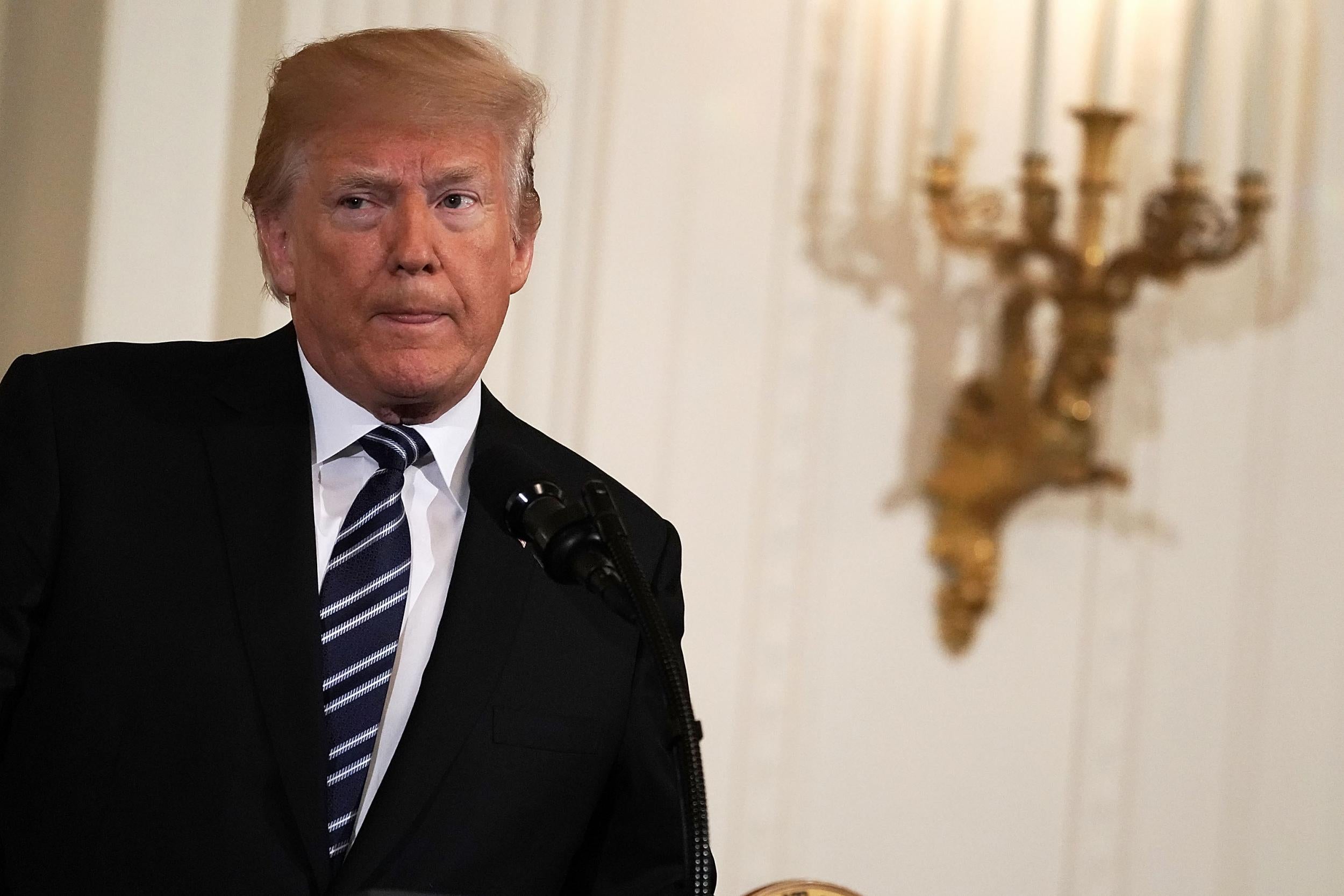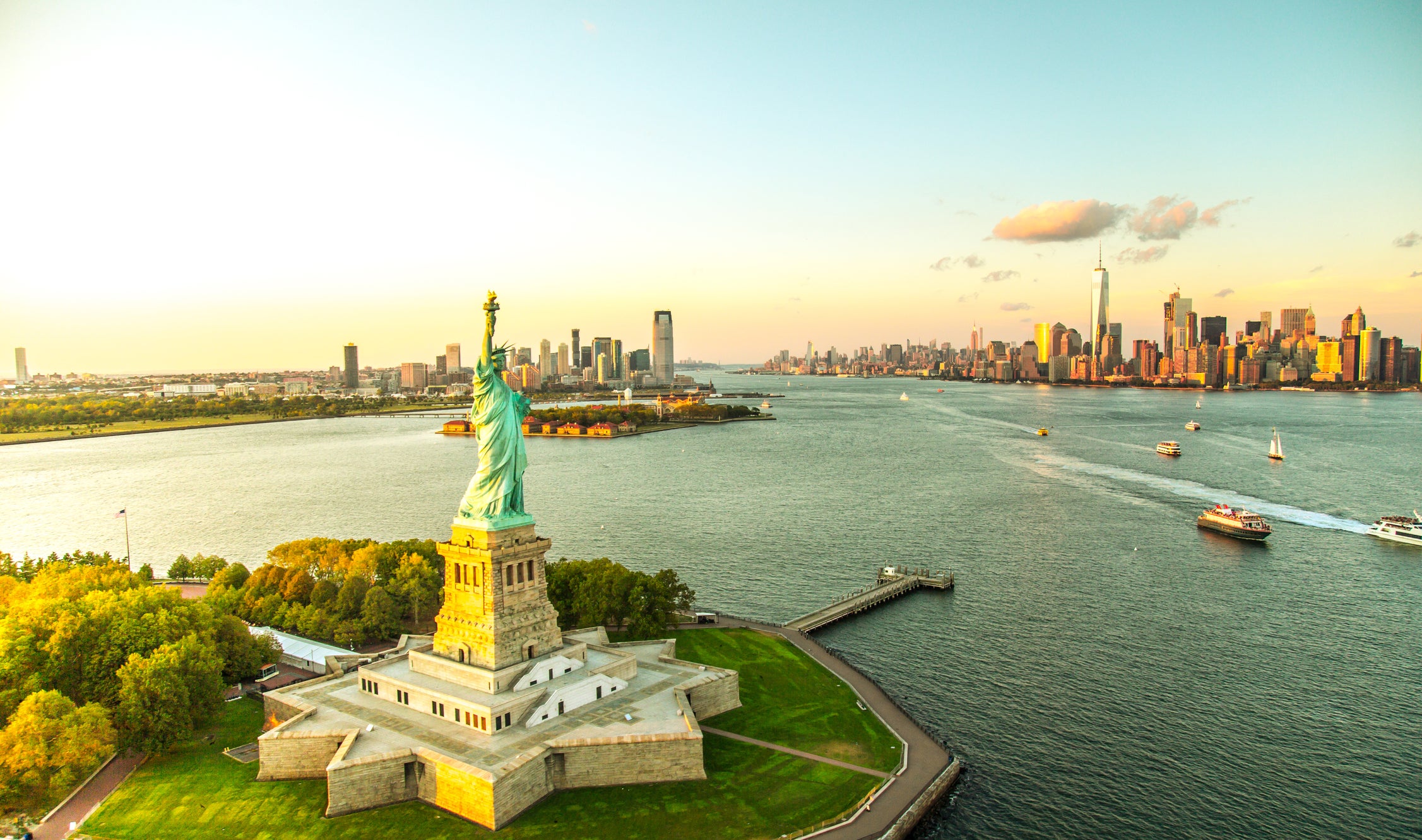Trump's strict travel policies causing America to 'fall behind competitors', US travel chief warns
US Travel Association president warns the country is falling behind competitors

Your support helps us to tell the story
From reproductive rights to climate change to Big Tech, The Independent is on the ground when the story is developing. Whether it's investigating the financials of Elon Musk's pro-Trump PAC or producing our latest documentary, 'The A Word', which shines a light on the American women fighting for reproductive rights, we know how important it is to parse out the facts from the messaging.
At such a critical moment in US history, we need reporters on the ground. Your donation allows us to keep sending journalists to speak to both sides of the story.
The Independent is trusted by Americans across the entire political spectrum. And unlike many other quality news outlets, we choose not to lock Americans out of our reporting and analysis with paywalls. We believe quality journalism should be available to everyone, paid for by those who can afford it.
Your support makes all the difference.The president of the US Travel Association, Roger Dow, has warned that the country is in danger of “falling behind” its competitors.
The US share of global long-haul travel fell from 12.9 per cent to 11.9 per cent between 2016 and 2017, with a five per cent drop in arrival numbers between 2015 and 2017, reports the Travel Trade Gazette,.
North America saw an overall rise of 2 per cent in tourism numbers, largely in Canada and Mexico, but the US witnessed a decrease, according to the World Tourism Organization (UNWTO).
During this period, the US is one of only two top global destinations to witness a decline in long-haul arrivals, according to the US Travel Association. The other is Turkey, which has experienced a number of highly publicised terrorist attacks in recent years, but is now enjoying a resurgence.
Speaking at the IPW travel trade conference on 22 May, Dow said: “More people around the world are travelling than ever before – but too many are visiting places other than the US.
“Bottom line: we’re falling behind our competitors. France – up. Germany – up. China – up.”
He added: “From 2015 to 2017, the US share of the global travel market slipped from 13.6 per cent to 11.9 per cent. That may not sound like a lot, but it translates to $32bn in lost visitor spending and 100,000 fewer US jobs.”
Dow also referenced President Trump’s strict travel policies, arguing that the US must commit to “pursuing pro-travel policies” and embrace processes to make travel easier.
“We are hopeful [Trump] will make it clear that he wants more business and leisure travellers here,” said Dow. “And we think he will.”

Dow added that tight security could be combined with maintaining “robust international visitor numbers” and homed in on the “extreme vetting” of US visa applicants as a cause for concern.
“This proposal would demand the social media profile information and travel history from 14 million visa applicants,” said Dow. ”That’s a vast expansion of private data collection with dubious security value.
“Making the US visa system unnecessarily intrusive or burdensome will impact global interest in travel to the US. Even a small decline could cost the US economy millions, which is why we are engaged on this issue.
While the US has seen a drop in its share of the long-haul market, other countries have witnessed a large rise. Canada’s share of the market has gone up by 21.2 per cent, Spain’s 32.7 per cent and the UK 17.5 per cent.
Join our commenting forum
Join thought-provoking conversations, follow other Independent readers and see their replies
Comments